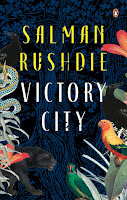
Granta 112: Pakistan
It's vividly, brutally engrossing. Pakistani writing has been the flavour of the times for a while now. Daniyal Mueenuddin, Mohsin Hameed, Mohammed Hanif are all writers we have read in the recent past. All of them find a place in this edition of Granta that focuses on Pakistan. It's a collage of reportage, short fiction, art, poetry coming together in a rich tapestry of dramatic beauty and vicious horror.
The opening act had me hooked. Nadeem Aslam's 'Leila in the wilderness' is a fable, much in the tradition of Laila Majnu. Except that it has at its heart the brutality of female infanticide and the terrible lengths people can go to in the quest for a son. Leila is magical as the young bride brought home to bear her husband a son he craves, torn apart from her family and her young love. The cruelty of a world that thinks nothing of killing babies because they are female, the incomprehensible faith that leads people to entrust daughters-in-law to lustful old men, the utter powerlessness of a woman in a man's world, the survival of exquisite love even in this brutal world - all brilliantly captured in this story that has echoes of Rushdie's magic realism.
Daniyal Mueenuddin has a short poem, and that is a disappointment after his cool ' In Other Rooms, Other Wonders'. Mohsin Hamid's 'A Beheading' is short and vicious like a knife through skin and snapshots the perils of being an artist in an autocracy. Uzma Aslam Khan's 'Ice, Mating' describes a stunning land in sheer poetry and a story that is neither here nor there. Mohammed Hanif's 'Butt and Bhatti' is a tragic farce of love and guns in the hands of men who don't know much. Jamil Ahmad's 'The Sins of the Mother' tells a story of ancient tribal customs of revenge and honour killings that survive in a twenty first century world.
The reportage and opinion pieces are no less riveting. Declan Walsh's piece on the north west and the forces that are tearing it apart - the Taliban on the one hand and the old feudal tribal system on the other - is a fascinating look at one of the last frontiers of the world. Jane Perlez's 'Portrait of Jinnah' paints us the picture of a man who possibly stood for anything but what Pakistan has ultimately turned out to be. Fatima Bhutto's piece on the Sheedis (a negroid race surviving in parts of Pakistan) is interesting because it tells me of a community I am not aware of. But her writing is less than inspiring, and I cannot read her without the background of her family in my mind.
There is more to discover in this book. But the underlying themes of beauty and horror keep replaying themselves over and over. Some of the horror is South Asian - the obsession with sons, the inability to integrate into a western world. But a lot is peculiarly Pakistani - the tribal customs, the extreme lawlessness, the Islamicisation/ jihadisation of an entire generation, the love-hate relationship with the only superpower in the world. The cover of Granta that features the art of a truck painter is vividly colourful. And so is the material inside.




No comments:
Post a Comment